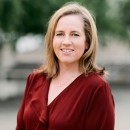Page 24 • (467 results in 0.044 seconds)
-

Chapter in L2 Grammatical Representation and Processing: Theory and Practice Chapters The Acquisition Environment for Instructed L2 Learners: Implementing Hybrid and Online Language Courses (Multilingual Matters 2019) : View Book Chapter in IALLT’s Language Center Handbook Chapters Supporting the LRC Mission through Collaborative Partnerships Across Campus and Beyond (IALLT 2018) Chapter in IALLT's From Language Lab to Language Center and Beyond: The Past, Present, and Future of Language Center Design
Area of Emphasis/Expertise -
a graduate program, we will challenge, inspire and inform you about mathematics’ beauty and power, as well as its theory and applications. In addition to offering bachelors of arts and bachelors of science majors in traditional mathematics, PLU offers a well-respected major in mathematics education intended for students planning to teach mathematics at the secondary school level. For students who are interested in mathematics in support of another major, PLU offers minors in mathematics
Department of MathematicsDepartment of Mathematics Morken Center, Room 252 Tacoma, WA 98447-0003 -
Ramstad and Harstad laboratories, often times leading to publication in peer-reviewed journals. Because the psychology department at PLU is committed to providing meaningful and rigorous undergraduate education that balances science and application, we provide a core of courses which cover research methodology and statistics designed to enhance the development of skills in critical thinking and theory building. Our goal is to prepare students to succeed throughout life. Throughout the program direct
-
Ramstad and Harstad laboratories, often times leading to publication in peer-reviewed journals. Because the psychology department at PLU is committed to providing meaningful and rigorous undergraduate education that balances science and application, we provide a core of courses which cover research methodology and statistics designed to enhance the development of skills in critical thinking and theory building. Our goal is to prepare students to succeed throughout life. Throughout the program direct
-
buildup to the Beijing Olympics. Franklin Foer, How Soccer Explains the World: An Unlikely Theory of Globalization (Harper Perennial, 2005) A fascinating read about globalization and the role of culture by looking at soccer as an expression of national identity, economic and political power in various communities around the world, especially South America and Europe. Richard Hoffer, Something in the Air: American Passion and Defiance in the 1968 Mexico City Olympics (Free Press, 2009) Story of the
-
electrical & computer engineering. Students can choose to work on the theory that drives the development of new molecules for trapping solar energy, new electrode materials and chemistry for batteries, or models for grid management of renewable energy. Other labs work on integrating these new materials into devices at both the nano- and macro-scale. By the end of the summer, students are familiar with both the technical skills of performing research within the lab, and the social and cultural skills
-
Principal Preparation ProgramINSTRUCTIONAL LEADERSHIP – With a focus on best practices, candidates will learn how to support achievement of all students, evaluate instruction and lead learning. HIGH-TOUCH – Small cohorts allow for individualized coaching, engaged discussions and meaningful feedback. BALANCE – The simultaneous internship paired with coursework allows for interns to practice theory while reflecting on leadership effectiveness. EQUITY CENTERED – Intentional emphasis on developing
-
build knowledge and healthy practices. Clean water is important, though how clean water is used is transformative. You are a bit nervous, though the training provided as part of the program by interdisciplinary PLU faculty that shares about the country, region, politics, culture, and customs is very helpful. You begin to understand the foundation of Transformative Learning Theory, the theoretical and applied foundation for this course, from Dr. Mulder. You realize that this is so much more than a
-
theory and methods classes; and two new courses specifically designed for students who plan to use their education background for educational work in non-school community institutions, such as: museums, environmental education centers, performing arts organizations, businesses, etc. This education background along with the student’s area of academic emphasis will be taken into consideration for the job-shadow and internship components of this program. Required Content Area and Emphasis Students must
-
electrical & computer engineering. Students can choose to work on the theory that drives the development of new molecules for trapping solar energy, new electrode materials and chemistry for batteries, or models for grid management of renewable energy. Other labs work on integrating these new materials into devices at both the nano- and macro-scale. By the end of the summer, students are familiar with both the technical skills of performing research within the lab, and the social and cultural skills
Do you have any feedback for us? If so, feel free to use our Feedback Form.


